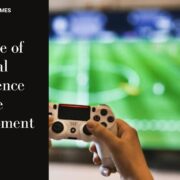Much like many of its neighbours in the Middle East, Kuwait has spent the past few years trying to diversify its economy away from its traditional reliance on energy revenues.
To achieve their goals, some nations have made significant strides in gaming, using the template laid down by the United States to create a regulatory framework for the sector.
While the US and Kuwait are two extremely different countries, the latter can gain inspiration from a nation which has become a major player in the online gaming industry.
Table of Contents
ToggleBuilding a Clear Regulatory Foundation
The US hasn’t always been consistent in its gaming laws. Its fragmented framework is a constant talking point in the gaming sector.
Each state has its own rules for casinos, sports betting and online gaming, breeding unnecessary confusion. There is a lesson for Kuwait – clarity brings confidence.
When the US federal ban on sports betting was lifted in 2018, states such as New Jersey and Pennsylvania wasted no time in immediately building a transparent, player-focused ecosystem.
They established a clear pathway for operators to earn licenses and invested heavily in responsible gambling initiatives. They established their terms and have not deviated.
Kuwait needs to understand that to have a boisterous but controlled gaming industry, it must develop a solid regulatory backbone. Before legalising iGaming, Kuwait should focus first on developing frameworks for data protection, consumer education and local business participation.
Modelling Kuwait’s gaming industry around New Jersey and Pennsylvania will ensure that the sector grows responsibly and supports local innovation in financial technology and software development.

The Casino Model: Balancing Growth and Control
Casino gaming in the US has evolved. Gambling used to be confined to land-based resorts, but online platforms now serve people looking for the thrill from the comfort of their home or on the go.
The entire digital casino ecosystem is regulated, taxed and strictly monitored. These elements have helped online gaming become a mainstream entertainment pastime.
Even though Kuwait still frowns upon traditional gambling culturally and legally, many Arab players indulge their passion for online casino games.
The finest online casino sites in Kuwait allow local players to play roulette, blackjack, slots and other popular games. However, the operators are licensed and regulated in other jurisdictions, which means the Kuwaiti government misses out on the tax revenues generated.
Kuwait must study how US casinos operate and follow their lead. American casinos have perfected the art of immersing players in a regulated landscape using gamified interfaces, loyalty systems, instant payments and impeccable cybersecurity.
Insights from the US’ design and infrastructure can help Kuwait build its own regulated digital gaming industry. They could focus on skill-based games and virtual tournaments that reward performance instead of chance, to avoid clashes with conservative factions.
If Kuwait is also considering international partnerships, it can learn from America how to establish strict compliance vetting. American regulators are particularly keen on operators demonstrating financial transparency, robust encryption and responsible gaming tools before entering the market.
Kuwait must employ similar standards to prevent illicit capital flows and ensure that its digital gaming sector aligns with national ethical standards.
The Rise of eSports: From Hobby to National Strategy
Competitive gaming has become a billion-dollar behemoth replete with broadcasters, sponsors and professional leagues. Tournaments fill arenas much like traditional sports and music events.
Kuwait has a young, tech-savvy populace that has expressed interest in competitive gaming, but the country can do better in terms of infrastructure.
The US is a noteworthy example of how investment in gaming can transform this industry into an engine of youth empowerment.
Colleges in the US have varsity eSports programmes and use them to boost enrolment, attract sponsors and promote educational initiatives.
California and Texas have embedded eSports as part of their plans to develop the workforce. Transferable skills such as teamwork, coding and marketing are cultivated by the industry.
Kuwait can pursue public-private partnerships to build eSports academies, digital arenas and scholarship programs. The country could also encourage its universities to work with tournament organisers or publishers to create new pathways for Kuwaiti students.
Professional gaming is a powerful branding tool that can showcase Kuwait’s youth on the global stage while establishing the country as a centre for digital creativity.
Kuwait can get a first-hand lesson from America on how to transform a pastime activity such as gaming into a platform for national progress.





